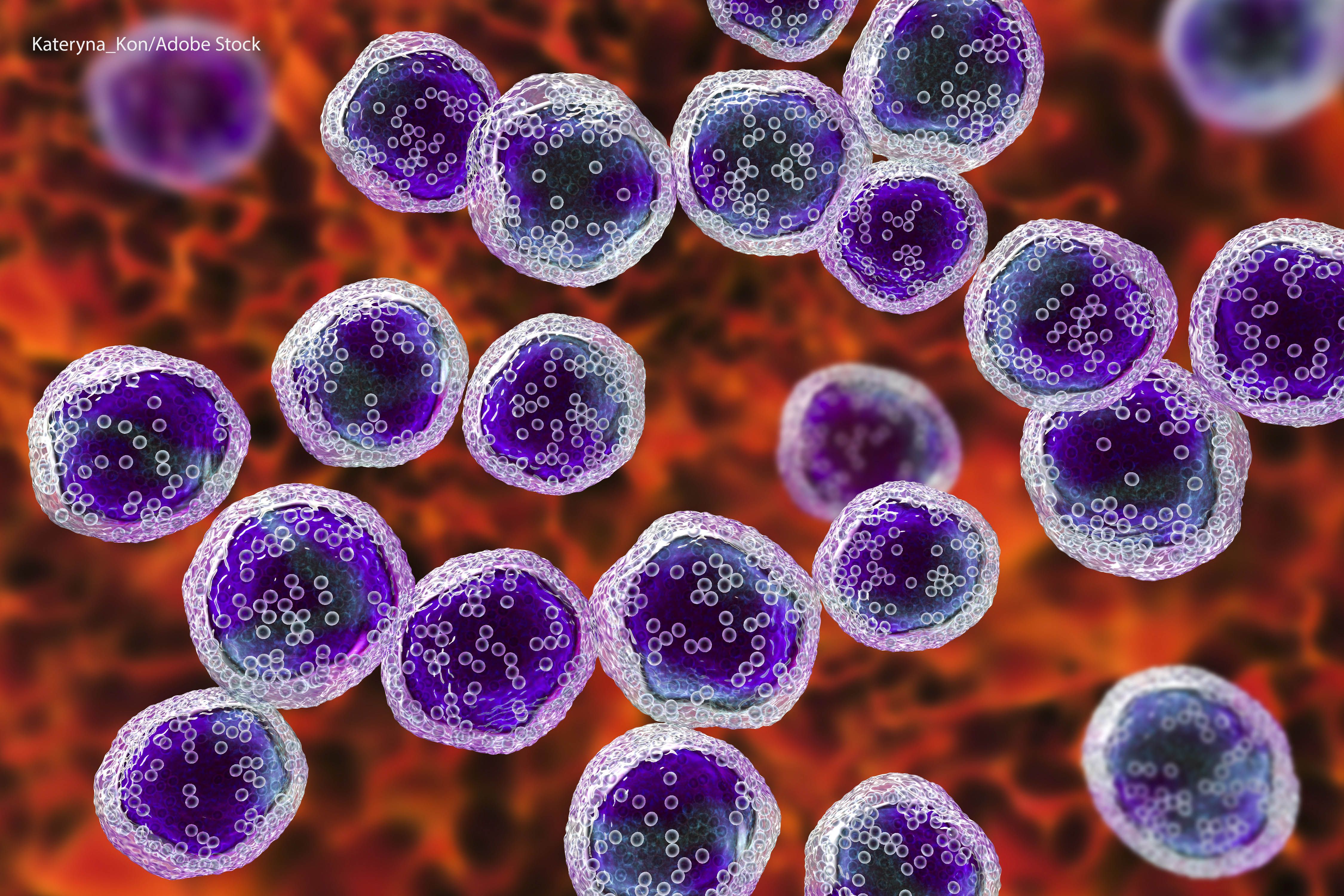EU’s CHMP Recommends Epcoritamab Approval in R/R Follicular Lymphoma
The European Commission is expected to decide on approving epcoritamab in relapsed/refractory follicular lymphoma later in 2024.
"Patients deserve new treatment options, and this positive opinion is the first step to bringing epcoritamab to more patients who need it," according to Catherine Thieblemont, MD, PhD.

The European Medicines Agency’s (EMA) Committee for Medicinal Products for Human Use (CHMP) has issued a positive opinion in support of granting conditional marketing authorization to epcoritamab-bysp (Epkinly) as a treatment for adults with relapsed/refractory follicular lymphoma following at least 2 prior lines of therapy, according to a press release from the developer, AbbVie.1
The European Commission is expected to decide on approving epcoritamab as a treatment for this patient population later in 2024.
“Each year, thousands of people in Europe are diagnosed with follicular lymphoma, and it's an upsetting reality that many of them will [have] relapsed and refractory disease,” Catherine Thieblemont, MD, PhD, head of the hemato-oncology department at Paris University, Hôpital Saint-Louis Assistance-Publique-Hopitaux de Paris in Paris, France, said in the press release.1 “Patients deserve new treatment options, and this positive opinion is the first step to bringing epcoritamab to more patients who need it.”
Supporting data for the CHMP’s opinion came from the phase 1/2 EPCORE NHL-1 trial (NCT03625037). Updated findings from the EPCORE NHL-1 trial were recently published in Lancet Haematology.2
Among 128 evaluable patients, epcoritamab elicited an overall response rate (ORR) of 82.0% (95% CI, 74.3%-88.3%). Additionally, a complete response (CR) occurred in 62.5% (95% CI, 53.5%-70.9%) of patients.
Of note, 25% of patients had grade 3/4 neutropenia. Investigators also reported grade 3 cytokine release syndrome (CRS) in 2% of patients. Additionally, 6% of patients had any-grade immune effector cell-associated neurotoxicity syndrome (ICANS).
In a cycle 1 dose optimization cohort including 86 patients, CRS occurred in 49%; there were no grade 3 or higher instances of this toxicity. No patients had ICANS in this cohort.
In the multicohort, single-arm EPCORE NHL-1 trial, patients received epcoritamab subcutaneously at 48 mg in 28-day cycles. In a pivotal cohort intended to mitigate the risk and severity of CRS, patients received a priming dose of 0.16 mg on day 1 plus an intermediate dose of 0.80 mg on day 8 followed by 48-mg doses and prednisolone at 100 mg. In the cycle 1 optimization cohort, patients received also received a second intermediate dose of epcoritamab at 3 mg on day 15 as well as adequate hydration and prophylactic dexamethasone at 15 mg.
The trial’s primary end point was ORR per independent review committee assessment in the dose-expansion portion. Secondary end points included duration of response, CR rate, duration of CR, progression-free survival, time to response, overall survival, time to next therapy, and minimal residual disease negativity.
Patients 18 years and older with a CD20-positive mature B-cell neoplasm, including but not limited to follicular lymphoma, mantle cell lymphoma, diffuse large B-cell lymphoma, and marginal zone lymphoma were eligible for enrollment on the trial.3 Other requirements for enrollment included having relapsed/refractory disease following treatment with an anti-CD20 monoclonal antibody, an ECOG performance status of 0 to 2, and adequate renal and liver function.
Patients with follicular lymphoma are likely to [have] disease recurrence and shorter durability of response with each subsequent line of treatment. This positive opinion recognizes the unmet need in the European Union for individuals with relapsed or refractory follicular lymphoma, following failure of other therapies,” Mariana Cota Stirner, MD, PhD, vice president and therapeutic area head for hematology at AbbVie, concluded in the news release.1
The FDA previously granted accelerated approval to epcoritamab in relapsed/refractory follicular lymphoma following 2 or more prior lines of therapy in June 2024.4 Supporting data for the accelerated approval came from the EPCORE NHL-1 trial.
References
- AbbVie receives positive CHMP opinion for epcoritamab (TEPKINLY®) for the treatment of adults with relapsed/refractory follicular lymphoma. News release. AbbVie. June 28, 2024. Accessed June 28, 2024. https://prn.to/45MTiUM
- Linton KM, Vitolo U, Jurczak W, et al. Epcoritamab monotherapy in patients with relapsed or refractory follicular lymphoma (EPCORE NHL-1): a phase 2 cohort of a single-arm, multicentre study. Lancet Haematol. Published online June 15, 2024. doi:10.1016/S2352-3026(24)00166-2
- First-in-human (FIH) trial in patients with relapsed, progressive or refractory B-cell lymphoma (EPCORE™ NHL-1). ClinicalTrials.gov. Accessed June 28, 2024. https://bit.ly/3W23dlR
- FDA grants accelerated approval to epcoritamab-bysp for relapsed or refractory follicular lymphoma. News release. FDA. June 26, 2024. Accessed June 28, 2024. https://tinyurl.com/26s9myey
Highlighting Insights From the Marginal Zone Lymphoma Workshop
Clinicians outline the significance of the MZL Workshop, where a gathering of international experts in the field discussed updates in the disease state.